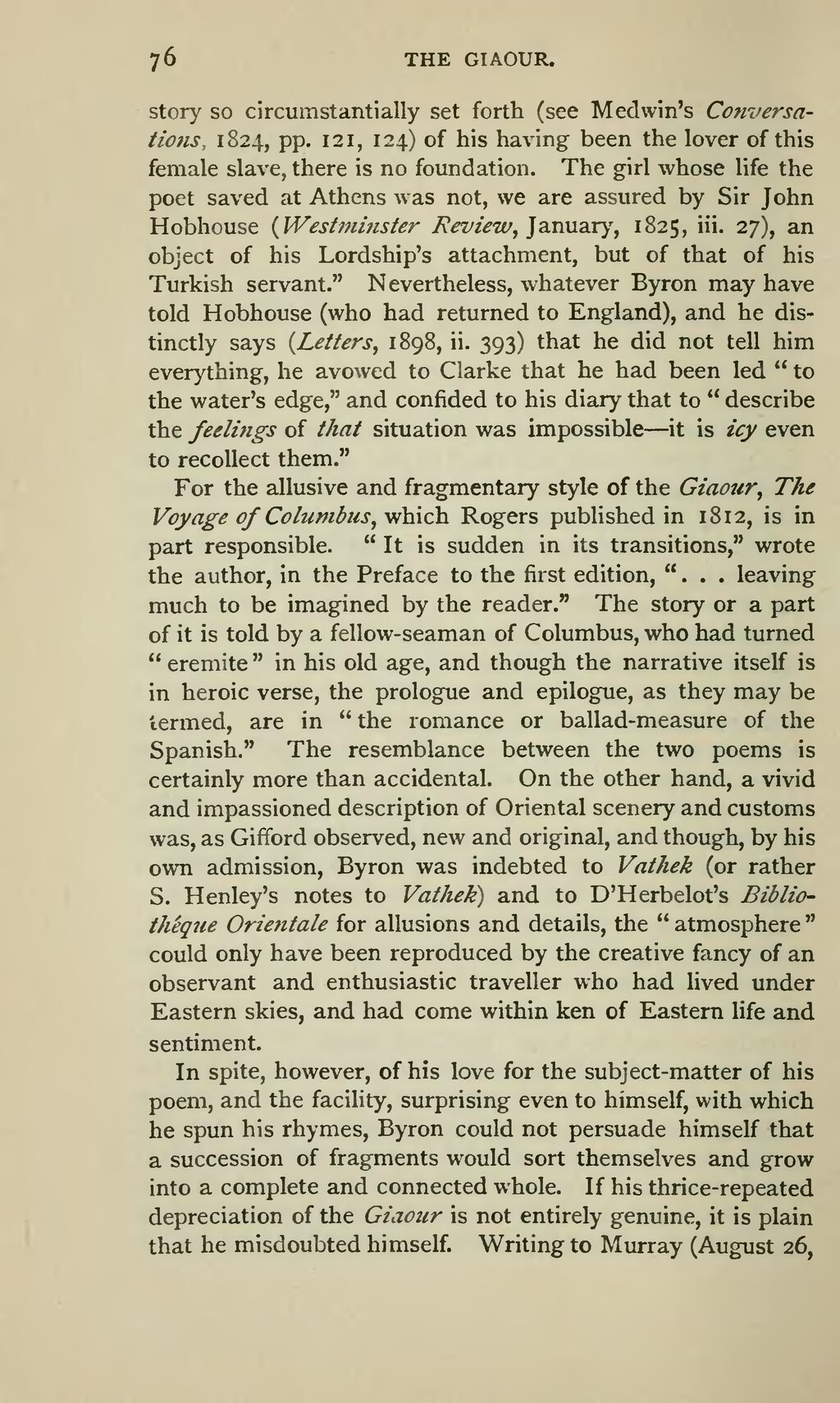story so circumstantially set forth (see Medwin's Conversations, 1824, pp. 121, 124) of his having been the lover of this female slave, there is no foundation. The girl whose life the poet saved at Athens was not, we are assured by Sir John Hobhouse {Westminster Review, January, 1825, iii. 27), an object of his Lordship's attachment, but of that of his Turkish servant." Nevertheless, whatever Byron may have told Hobhouse (who had returned to England), and he distinctly says (Letters, 1898, ii. 393) that he did not tell him everything, he avowed to Clarke that he had been led "to the water's edge," and confided to his diary that to "describe the feelings of that situation was impossible—it is icy even to recollect them."
For the allusive and fragmentary style of the Giaour, The Voyage of Columbus, which Rogers published in 1812, is in part responsible. "It is sudden in its transitions," wrote the author, in the Preface to the first edition, ". . . leaving much to be imagined by the reader." The story or a part of it is told by a fellow-seaman of Columbus, who had turned "eremite" in his old age, and though the narrative itself is in heroic verse, the prologue and epilogue, as they may be termed, are in "the romance or ballad-measure of the Spanish." The resemblance between the two poems is certainly more than accidental. On the other hand, a vivid and impassioned description of Oriental scenery and customs was, as Gifford observed, new and original, and though, by his own admission, Byron was indebted to Vathek (or rather S. Henley's notes to Vathek) and to D'Herbelot's Bibliothéque Orientale for allusions and details, the "atmosphere" could only have been reproduced by the creative fancy of an observant and enthusiastic traveller who had lived under Eastern skies, and had come within ken of Eastern life and sentiment.
In spite, however, of his love for the subject-matter of his poem, and the facility, surprising even to himself, with which he spun his rhymes, Byron could not persuade himself that a succession of fragments would sort themselves and grow into a complete and connected whole. If his thrice-repeated depreciation of the Giaour is not entirely genuine, it is plain that he misdoubted himself. Writing to Murray (August 26,
